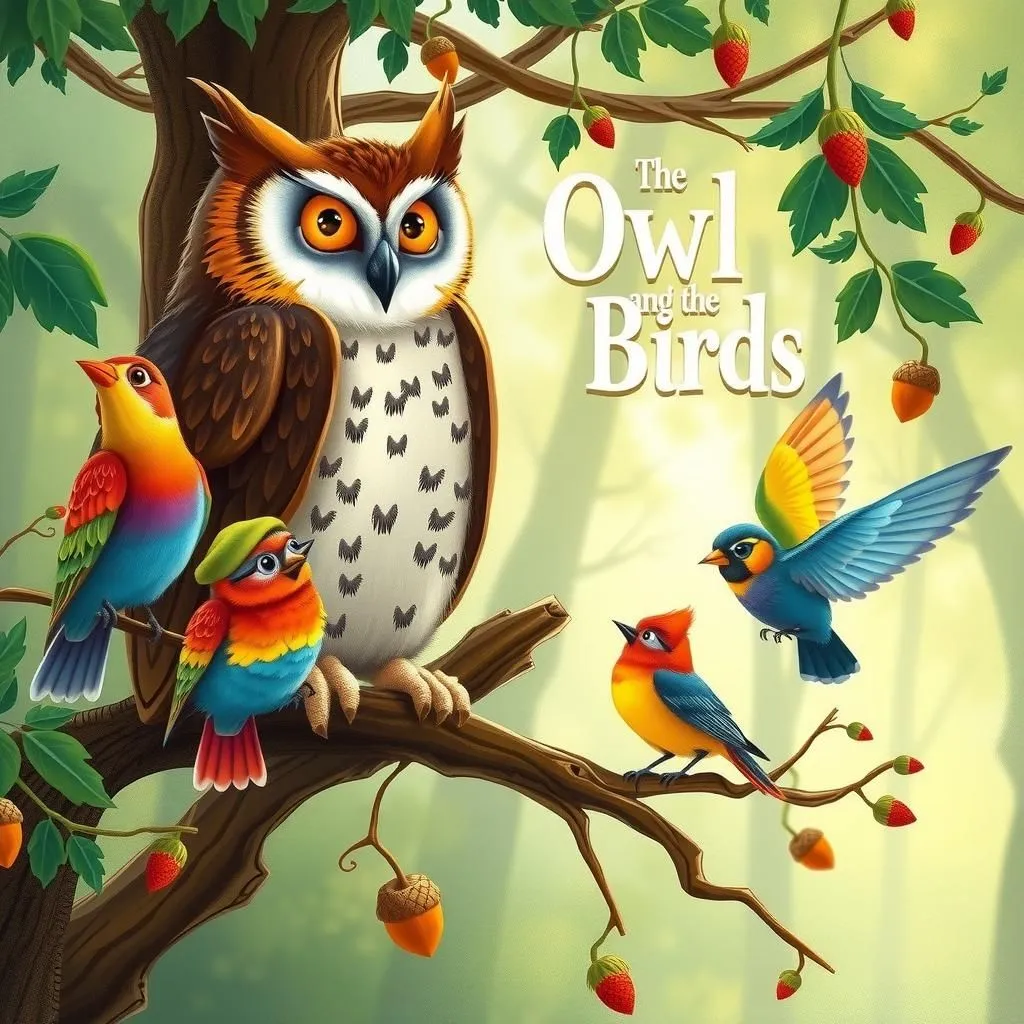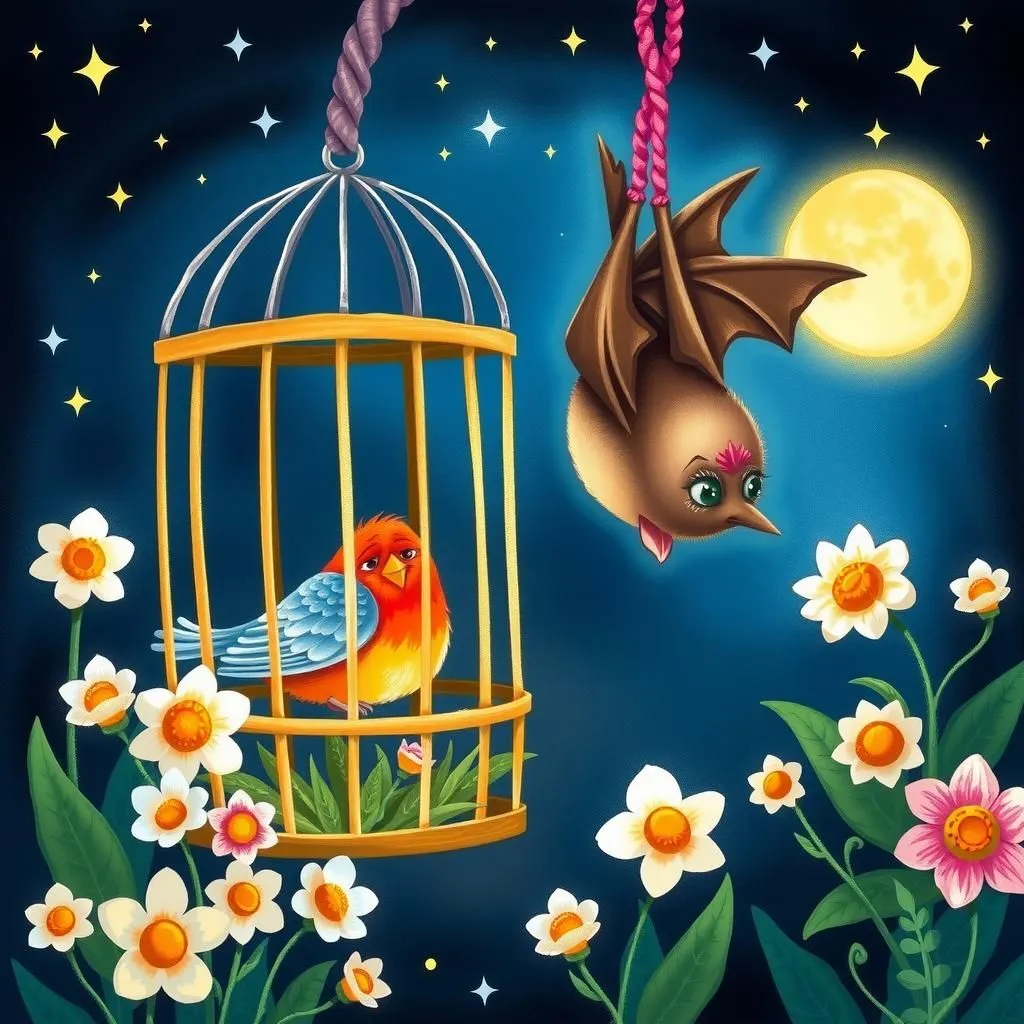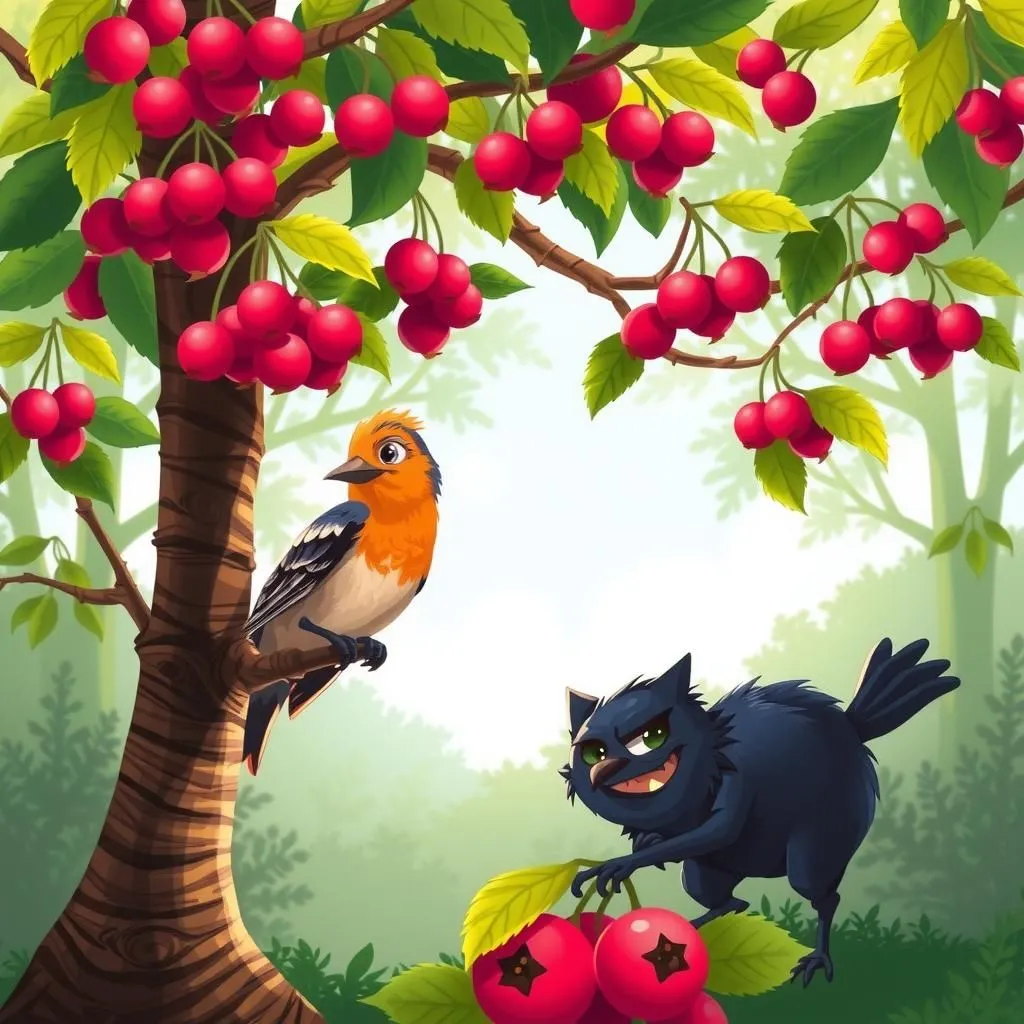
The Owl and the Birds
In "The Owl and the Birds," a wise owl shares her knowledge through moral-based storytelling, warning the birds to uproot sprouting acorns and flax seeds that would bring danger from mistletoe and hunters. Dismissing her counsel as madness, the birds later regret their disbelief when her predictions come true, realizing the owl's wisdom echoes the lessons found in classic moral stories. Now, they revere her in silence, reflecting on their past folly and the importance of heeding wise advice.


